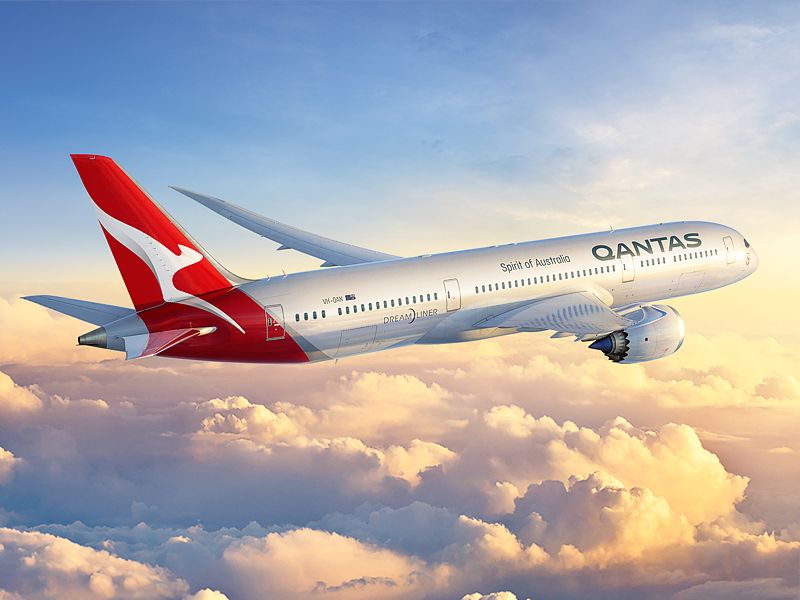
Qantas is to start a non-stop service between the UK and Australia on March 24. Some passengers may look back to a golden age when boarding an aircraft meant you had entered the Jet-Set. However, until recently flights down under were tedious and dull. Now, body-clock breakdown on the 17-hour flight is the biggest problem.
In less than a century, travelling from Australia to the UK has evolved from a six-week sea voyage to just a single flight.
The first flight on the historic 'Kangaroo Route' to Australia started in 1935, when it had ten major stopovers and 21 more refuelling stops over 20,525km (12,700 miles). The co-pilot of the tiny aircraft handed out sandwiches, and the fare cost the equivalent of $18,000 today.
By 1938 'flying boats' left Rose Bay in Sydney for Southampton taking nine days. Cabins were so spacious, passengers could stroll around and smoke in a true golden age.
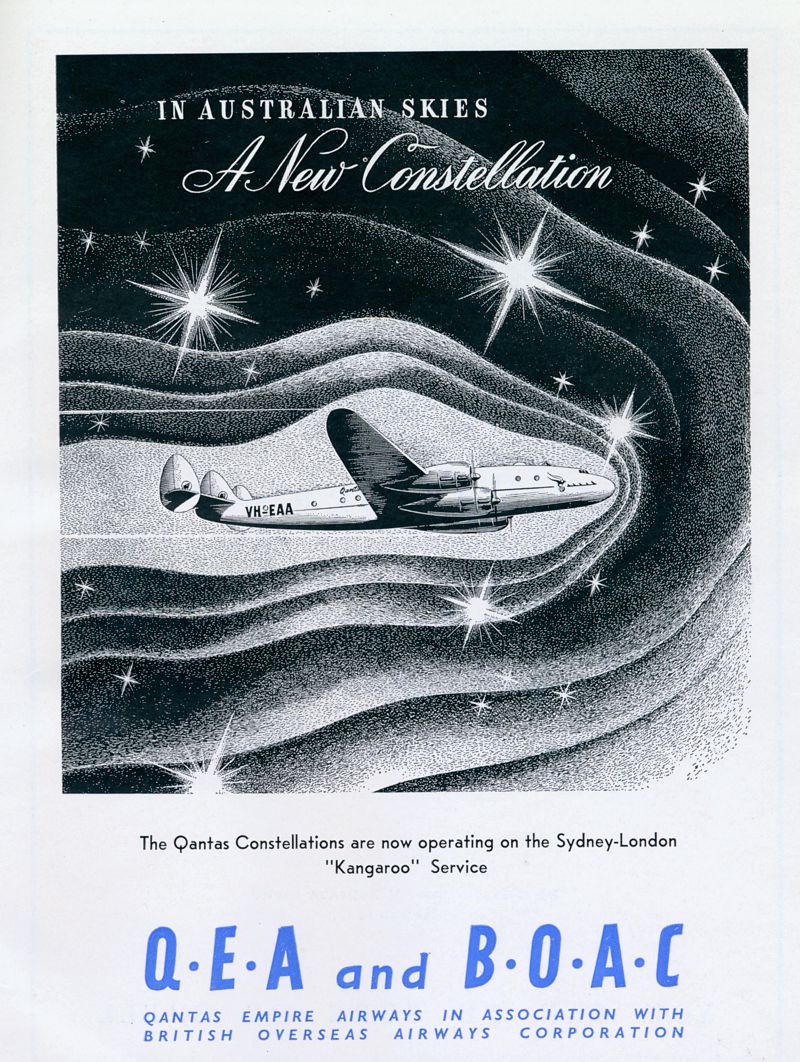
Over the decades stopovers reduced. Qantas flew all the way in Lockheed Constellation aircraft by 1947 taking just 4 days, and Boeing 707 jet aircraft in 1959 reduced flights to 34 hours.
However, the first flights that modern travellers would recognise started in in 1971 with the Boeing 747, and only two stopovers - Singapore and Bahrain.
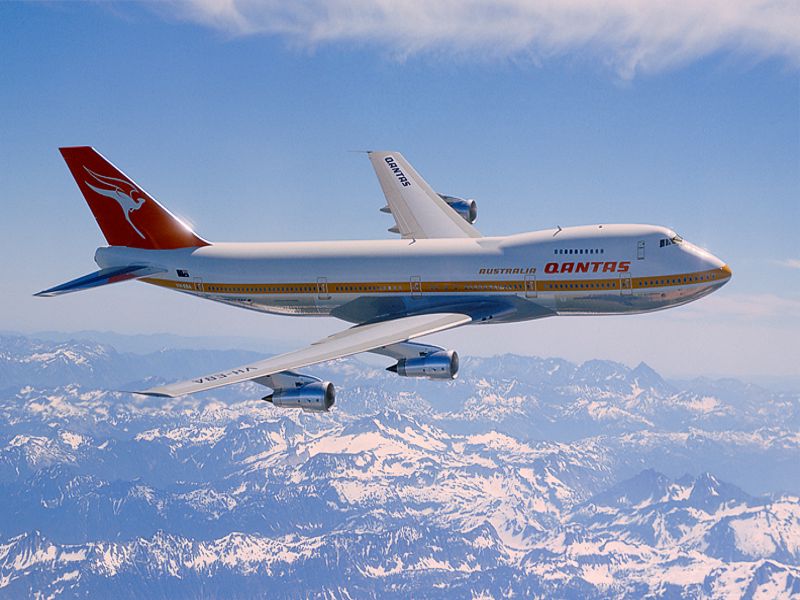
Passengers were advised to bring 'several books', with the "Captain Cook" bar behind the cockpit the only entertainment.
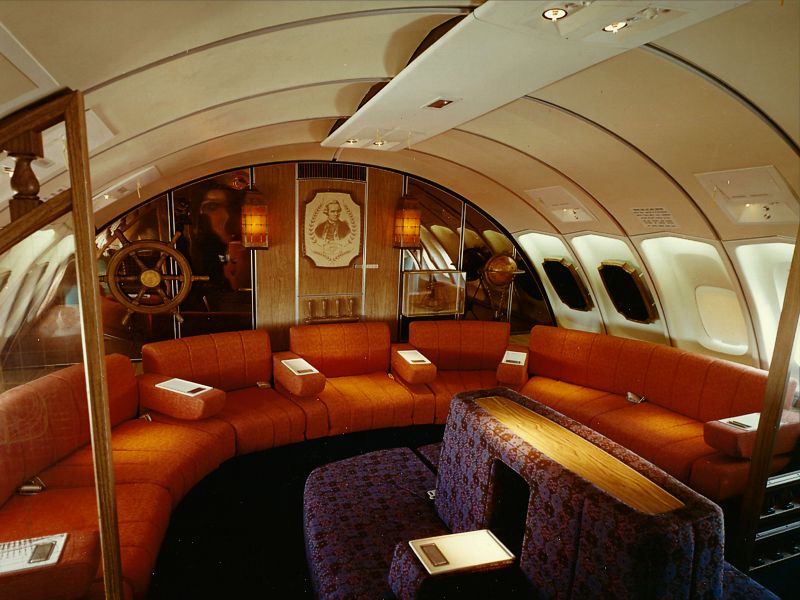
There will be no stopovers at all on March 24th, when Flight QF9 leaves Perth, Australia's westernmost city, at 6.45pm for London. It returns as QF10 on March 25th leaving Heathrow at 1.30pm, arriving the next day. The 14,498km (9,000 miles) service will be the first non-stop Australian UK link.
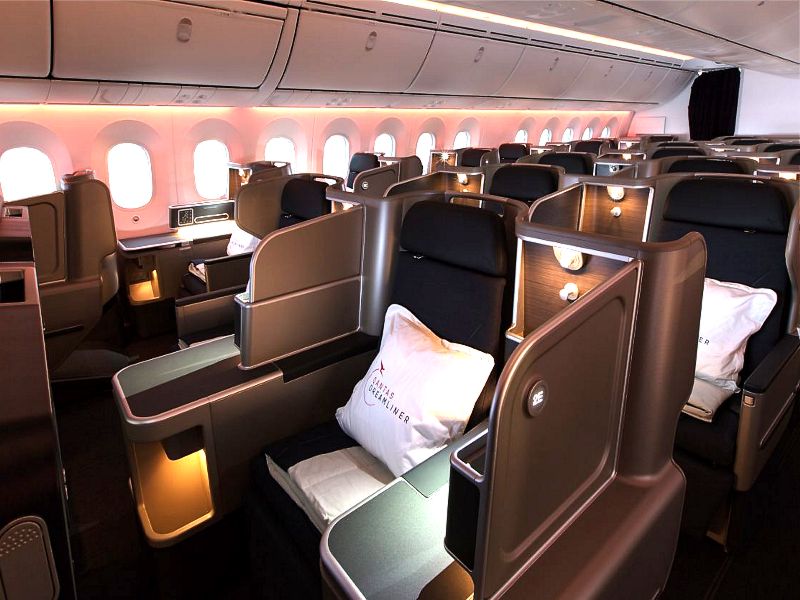
Qantas' Boeing 787-9 Dreamliner is twice as efficient as older Boeing 747s, which burnt much of their fuel in the first few hours, just to carry the weight of the same fuel.
Tourists explode
"Non-stop flights have been talked about for many years, but aircraft technology has only just caught up," says the University of Adelaide's Dean Wilkie. "Now, Perth is bracing for exploding tourist numbers after a blitz of posters on the London Underground and busses proclaiming, 'Wake up in Western Australia'."
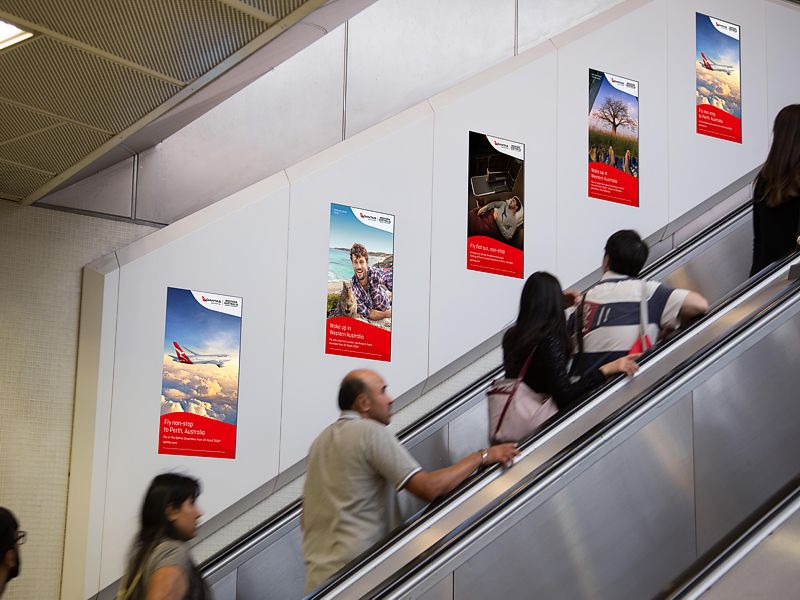
The WA State Government has entered into a $5.7m AUD (£3.2m GBP) marketing agreement with Qantas, including screens showing the highlights of WA at London's Liverpool Street station.
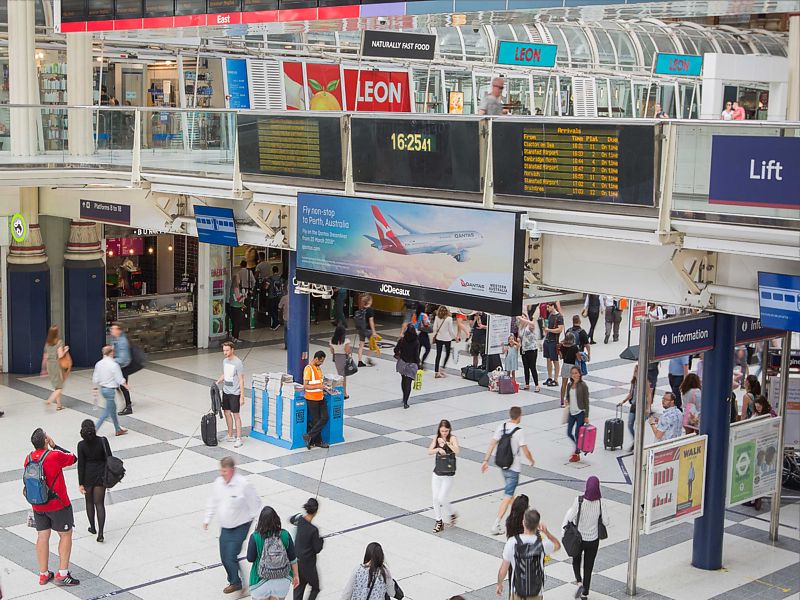
Tourism Minister for Western Australia Paul Papalia says, "the campaign encourages travel into regional WA, as well as Rottnest Island, Elizabeth Quay and Perth's beaches."
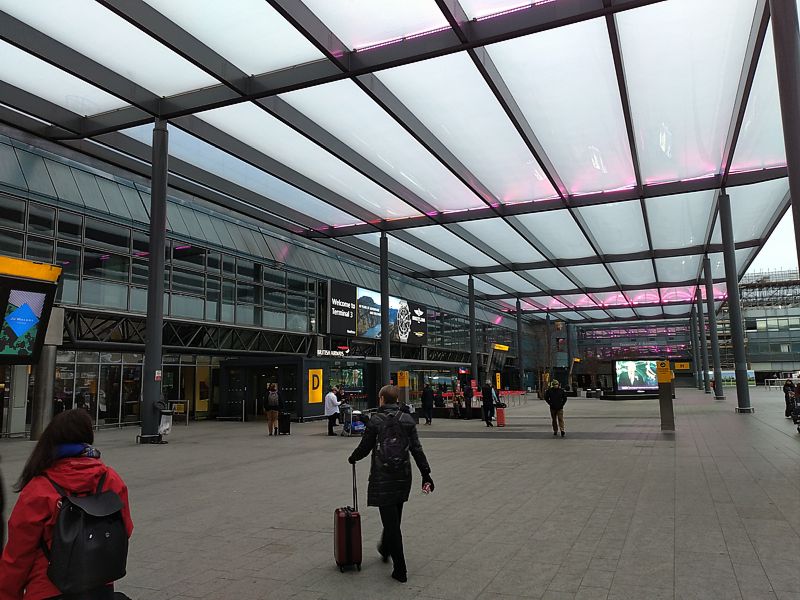
According to Australia's Bureau of Infrastructure, Qantas carries over 70 per cent of all passengers between Australia and the UK, if you include codeshares on Emirates aircraft.
Dean Wilkie agrees. "The UK is a standout market for Qantas, but many tourists never consider Western Australia. Now they'll get to see Perth too."
"Meanwhile vast numbers of Aussies see images of home at the bus during their traditional two years working in London. And business passengers avoid passport hassles and expense stopping somewhere they don't want to go."
Flight QF10 stops for an hour long refuel and clean before flying on to Melbourne, shaving an hour off the old route via Dubai.
"It's rare to highlight the attractions of a refuelling stop - normally a negative in travel," suggest Wilkie. "However, this achieves synergy with all three types of passengers."
Qantas CEO Alan Joyce says the shiny new 787-9 Dreamliner marks a milestone in the evolution of the Kangaroo Route. "The windows are bigger, it's extremely quiet and the aircraft smooths out turbulence. Customers love it."
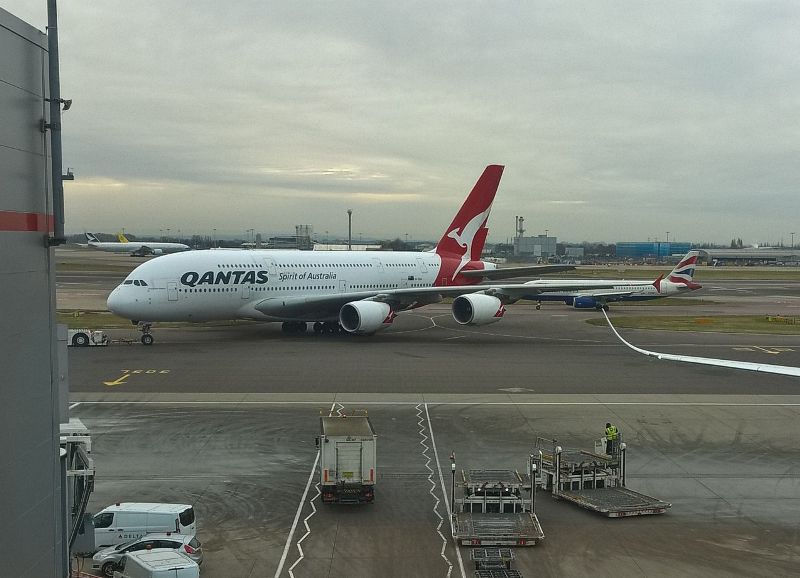
Qantas abandon Dubai
Despite the new direct route, Qantas are also to return to the traditional Kangaroo route via Singapore using Airbus A380 aircraft, which it abandoned five years ago for Dubai.
Marketing academic John Roberts spends half his year in Australia, and half at London's Business School. He says, "passengers never really enjoyed the overnight refuelling stop in Dubai. Singapore airport has far more shops and restaurants, and the huge Qantas Club there was rebuilt just before the switch for passengers to use it as a transit hub, as it will be once again."
With attention on ultra-long flight comfort, airlines are also focusing on the ground experience, as he explains. "Lounges have become major selling points, because passengers typically spend three hours waiting for flights."
Qantas has just opened it's new lounge at Perth airport, for departures for London Heathrow.
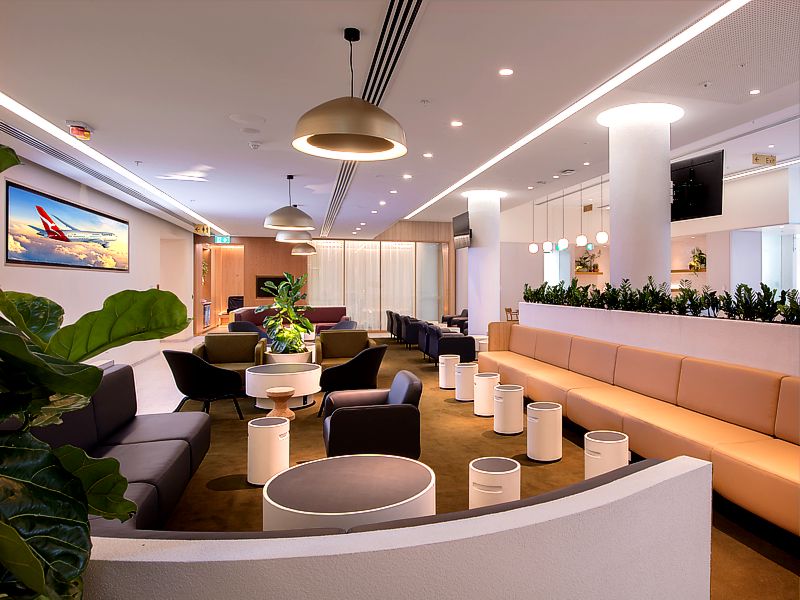
The Perth International Transit Lounge has been designed by Australian Industrial designer David Caon and SUMU design, in consultation with the University of Sydney's Charles Perkins Centre.
The Qantas Perth lounge for 787 customers offers a range of unique features including 'light therapy' in the shower suites to help adjust the body clock, a wellbeing studio with stretching classes and a refresh area providing hydrating face products. Customers can dine in an open-air terrace with a BBQ serving dishes by celebrity chef Neil Perry from Rockpool.
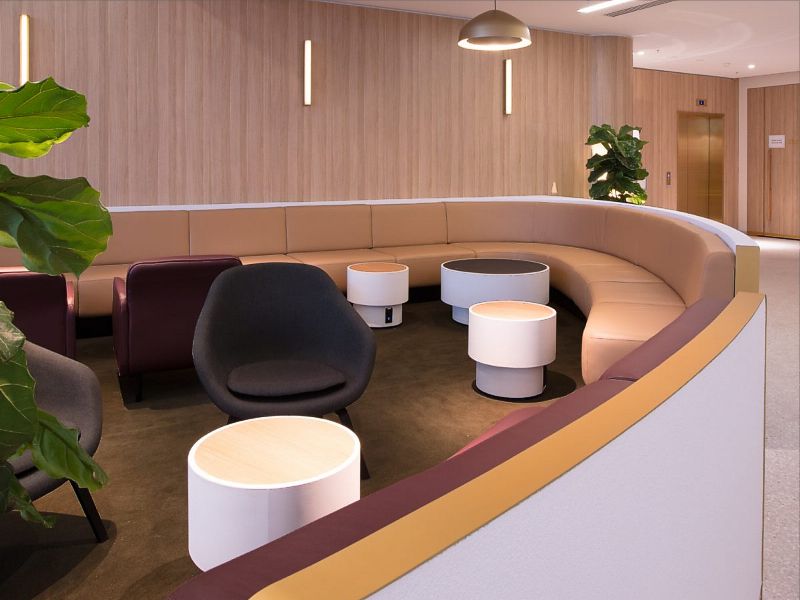
The Outdoor BBQ has chefs cooking sausages from local Perth butcher Princi Smallgoods, and vegetables such as grilled mushrooms and corn on the cob.
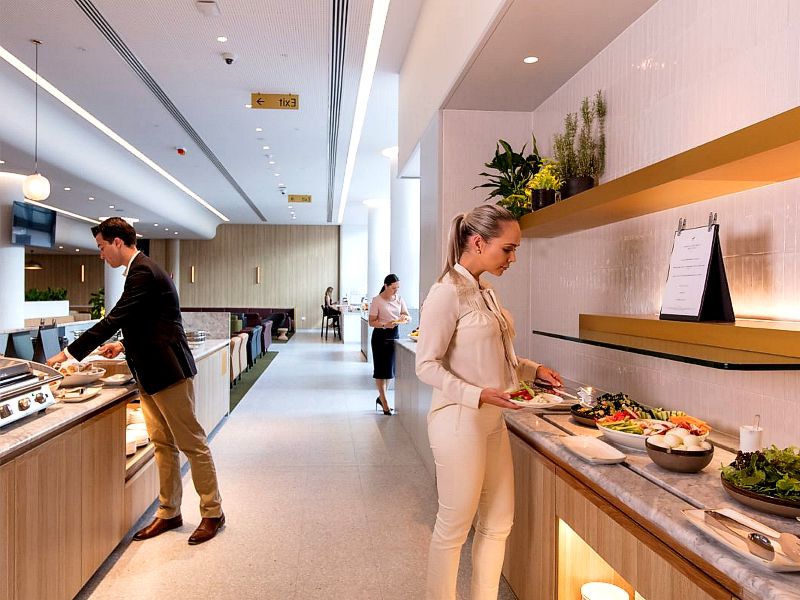
There is also a buffet serving light dishes including soups with homemade damper, healthy salad bowls, crudite and dips.
Probably very welcome after the longhaul is the full service bar with premium wine and beer from Australia, including the Margaret River region.
The lounge has 15 shower suites. However, the lounge is only open for passengers beginning on the QF9 from Perth (also if connecting from any domestic flight onto QF9) and the reverse QF10 from London only if carrying on to Melbourne. You'll also need to be in Business class or hold Qantas Platinum, or Gold status in economy.
There is no access if you connect from another domestic flight onto the QF9, or connect to another domestic flight having arrived off the QF10.
The new Qantas Perth lounge is open 1pm to 2:45pm for QF10, then 4:45pm to 6:50pm for QF9.
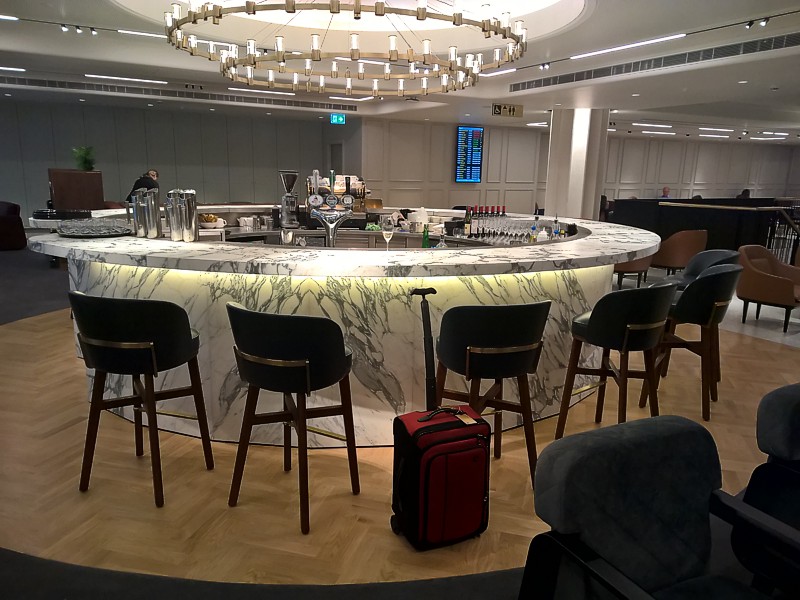
Qantas has also invested millions in its first ever Business Class lounge at London Heathrow, featuring two cocktail bars specialising in Australian and British gin.
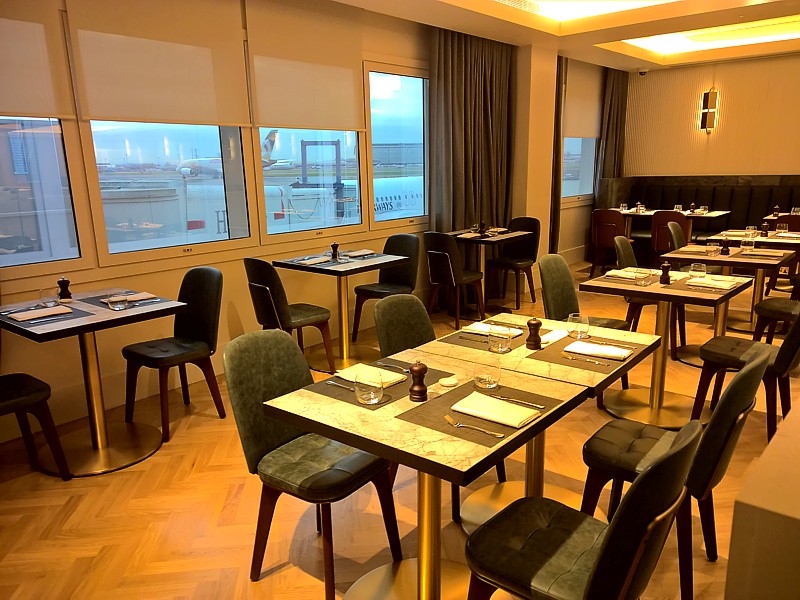
Dean Wilkie believes this is a marketing ploy. "It's uneconomic to build a vast two-level lounge at Heathrow for 42 business class passengers a day to Perth.
But it's a 'Unique Selling Point'. Passengers feel they're back in Australia before departure, and it encourages passengers to pay extra."
Read More:
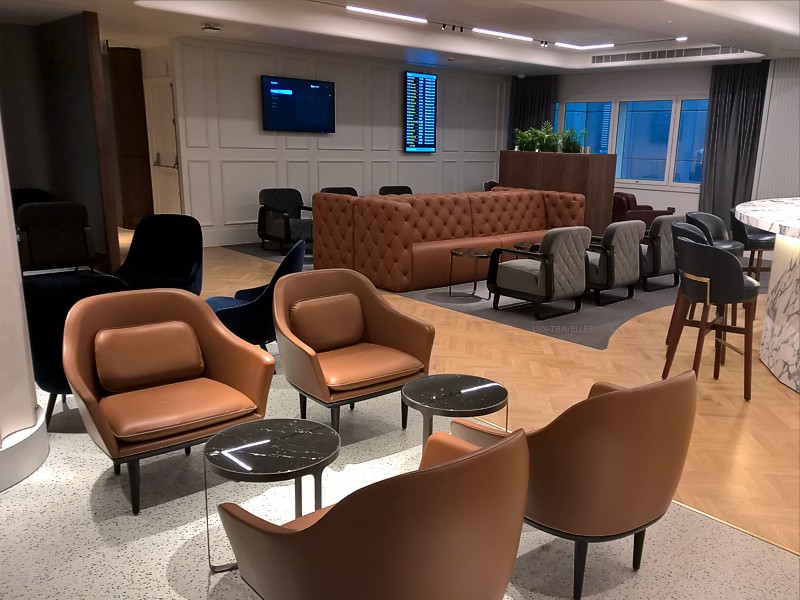
He adds Asian and Chinese airlines are competing fiercely with cheap fares. "Qantas is spending on frills other airlines don't have to ensure business passengers remain loyal. They are the ones who generate the most profit."
Professor Roberts say it is no surprise that Qantas has made a dramatic turnaround in its routes from Sydney. "Qantas will return to flying to London via Singapore from Sydney and axe the unpopular route via Dubai it started five years ago."
He says customers like spacing out their stop on the way to Europe. "The splitting of the kangaroo route into a 14 hour hop to Dubai, followed by a 7 hour one to London did not add up. Dubai could never match the charms of Singapore as a stepping stone to Europe. It's quite right that Qantas abandon Dubai."
Qantas can also continue to clip the ticket on Emirates flights through Dubai into all of Europe, he adds. "And it can continue to get scale in the highly attractive South-Eastern Asia market. All it has to do is work out how to handle its arrangements with its One World Alliance partners. The British Airways relationship remains a pesky one after Qantas burnt its previous agreement to pass traffic to each other's aircraft five years ago."
"Frenemies are so much harder to manage than either friends or enemies," Professor Roberts says. "And BA is Qantas' frenemy. There will be winners and losers. If one looks at the numbers, it looks as though on balance Qantas will be a loser with a dream half full."
17 hours on a plane
Steve Simpson from the University of Sydney's Charles Perkins Centre, works with Qantas studying the impact on the human body of such long flights, and says they are at the limit of human endurance."Your circadian rhythm takes cues off food and light, and this flight disrupts it."
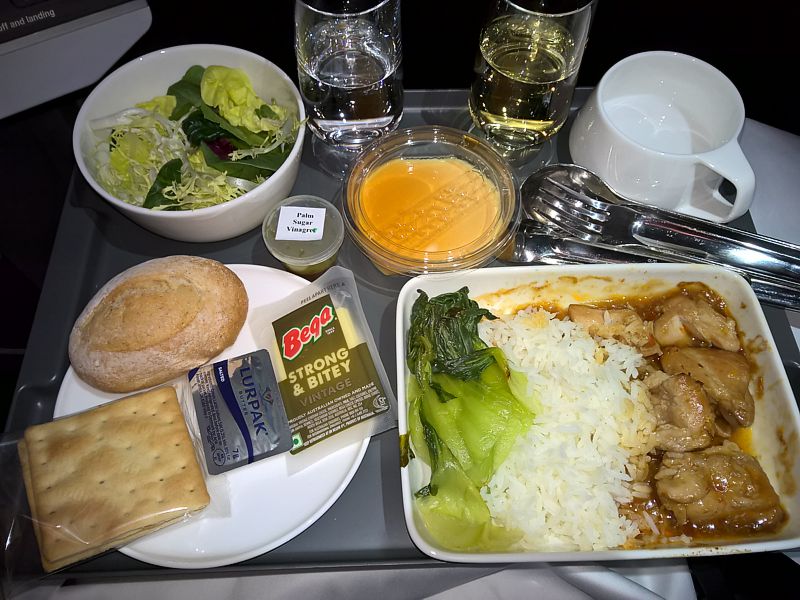
He says that's why flight crew typically lower window shades and serve meals at destination times - which surprises passengers. "We did suggest to Qantas serving meals at Australian time, on take-off from London. However, there's a limit to what customers will tolerate. We also avoid chilli as that causes sleep deprivation. Instead the menu promotes melatonin."
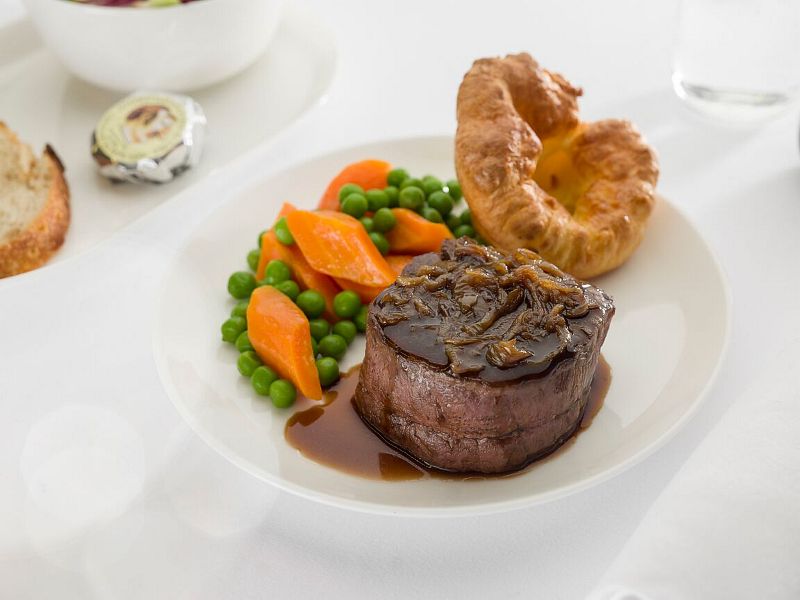
Inflight meals include traditional English fare, such as roast beef and Yorkshire pudding, plus an Australian breakfast of kale, quinoa, and haloumi.
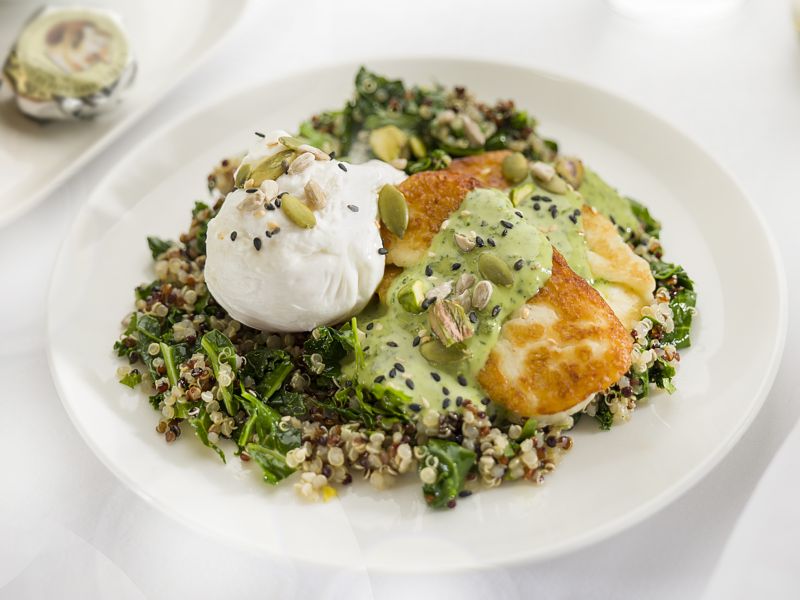
He's working with Qantas on meal times and cabin lighting scenario. "Short wavelength light resets your clock. So, cabin lights will dim a couple of hours into the trip. However, just by looking out of the window you can mess it up again."
Read More:
Twenty human guinea pigs on the inaugural flight will be wired intomonitors to check how their bodies are coping, including their temperaturewhich is crucial for sleeping. "It will be 22 degrees when people board, but 4 degrees lower mid-flight, which tricks the body to change their internal clock."
He also suggests passengers can help themselves. "Get up really early a few days before the flight. Have an early lunch at Heathrow, maybe at 10am. The first meal on the plane becomes dinner. You'll sleep, even though it's only 4pm."
However, if this flight isn't long enough for you, Qantas has another trick up its sleeve. It's asking Airbus and Boeing to deliver aircraft that can fly 20-hours non-stop to Sydney by 2022.


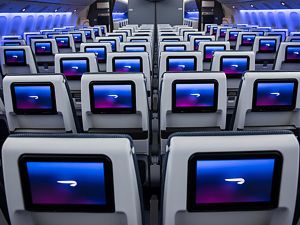 Smaller seats for BA 777s at Gatwick & Heathrow
Smaller seats for BA 777s at Gatwick & Heathrow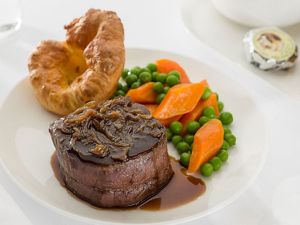 Qantas 787 London to Perth menu revealed
Qantas 787 London to Perth menu revealed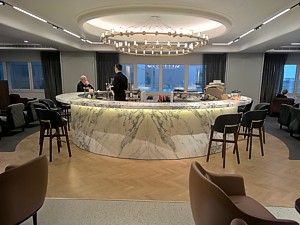 Qantas London Heathrow Lounge opens
Qantas London Heathrow Lounge opens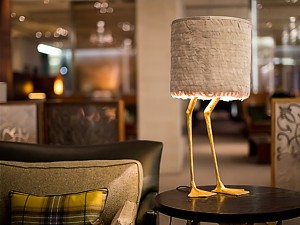 British Airways revamps Concorde Room lounge
British Airways revamps Concorde Room lounge